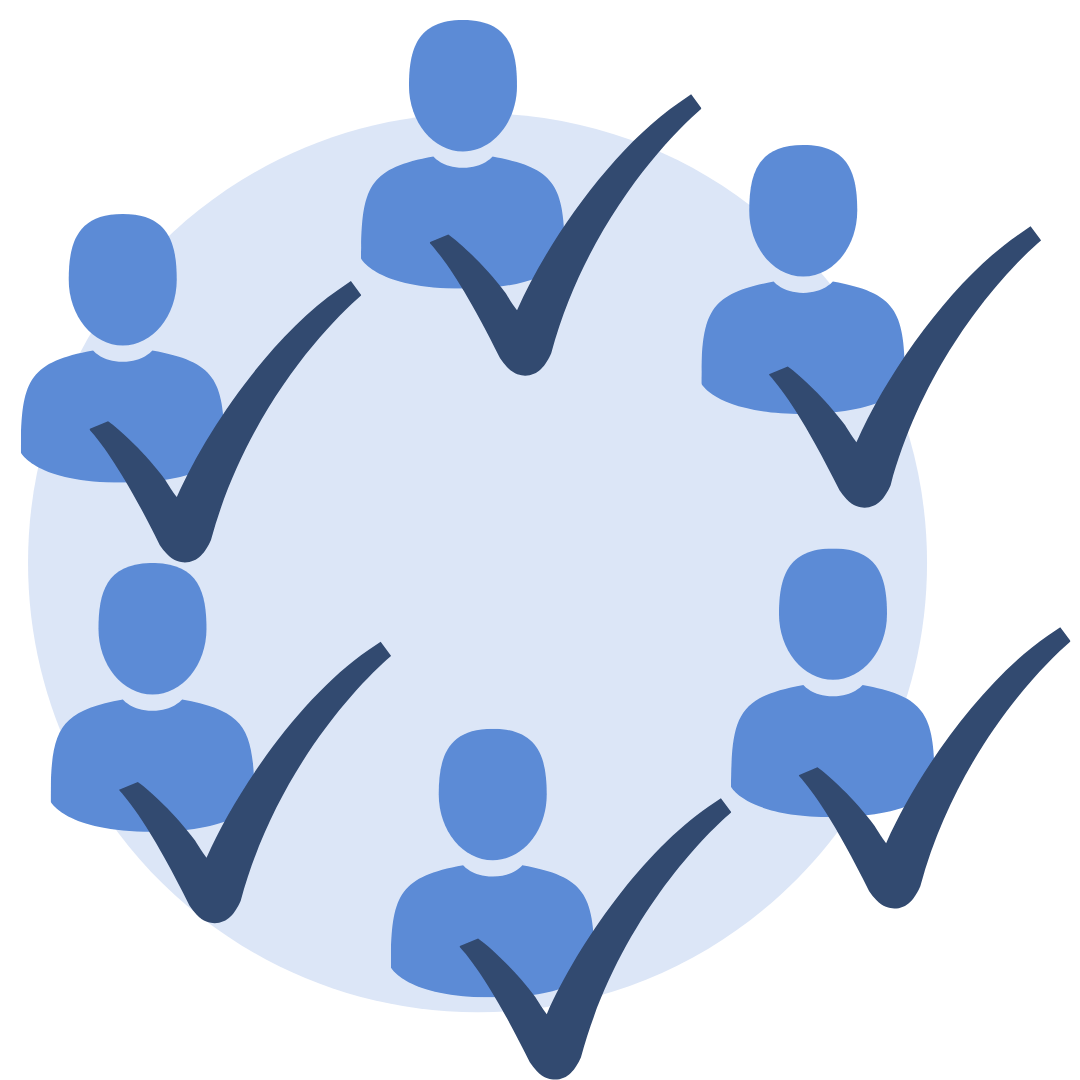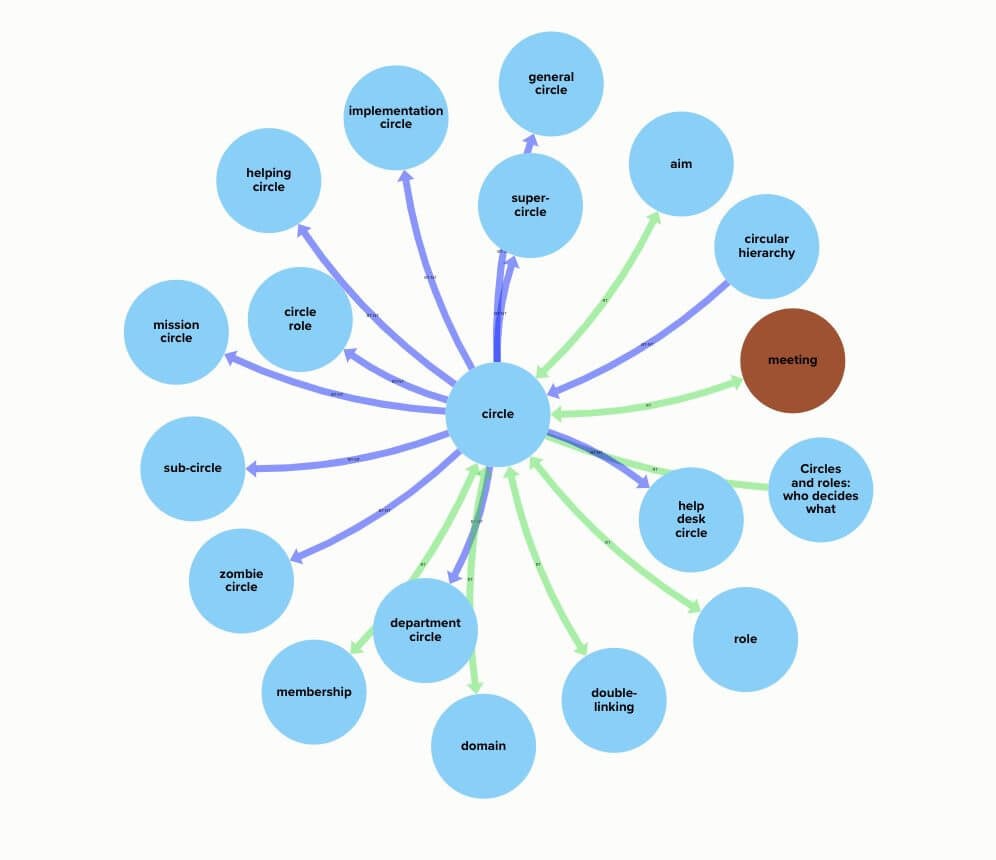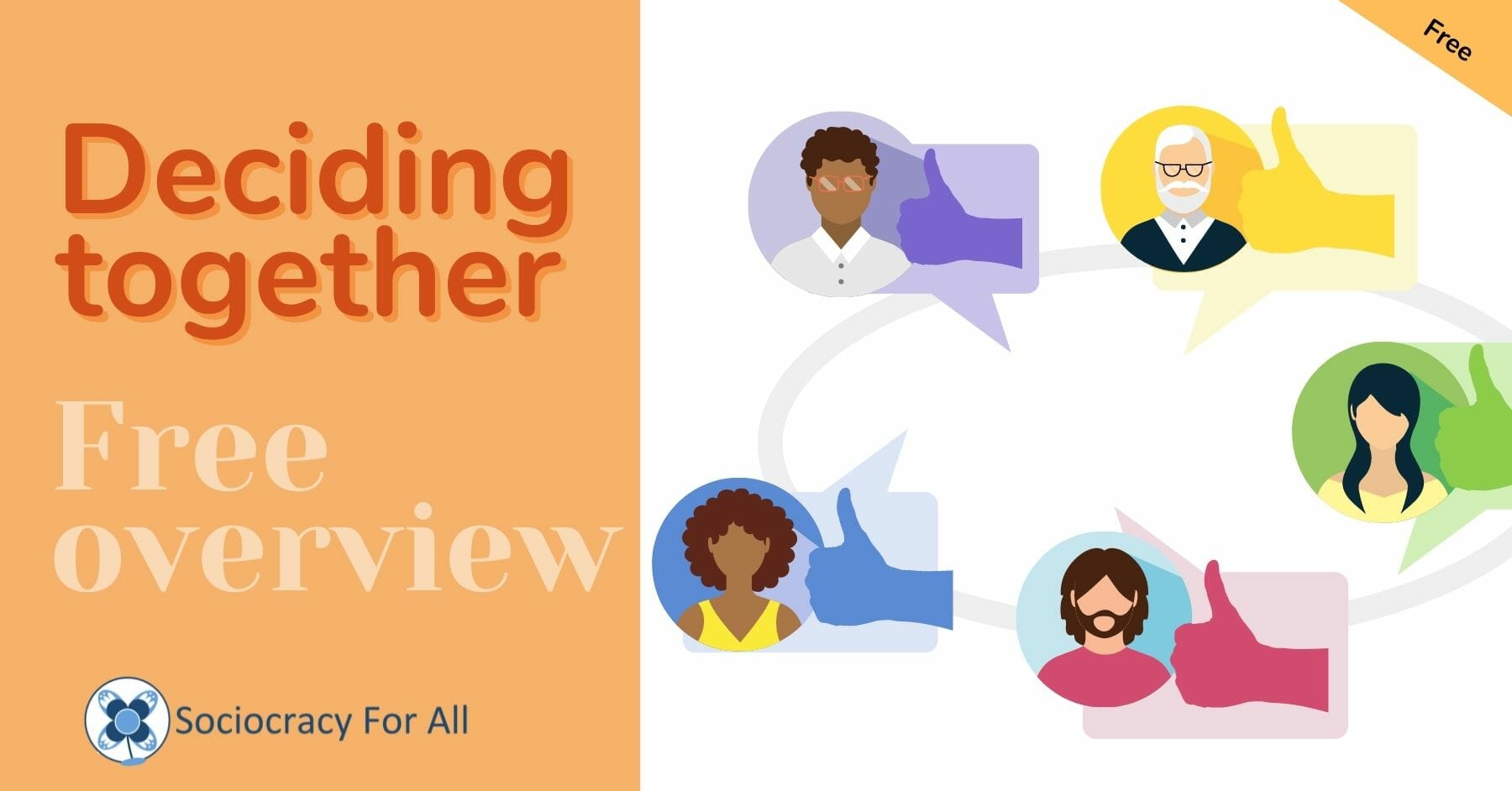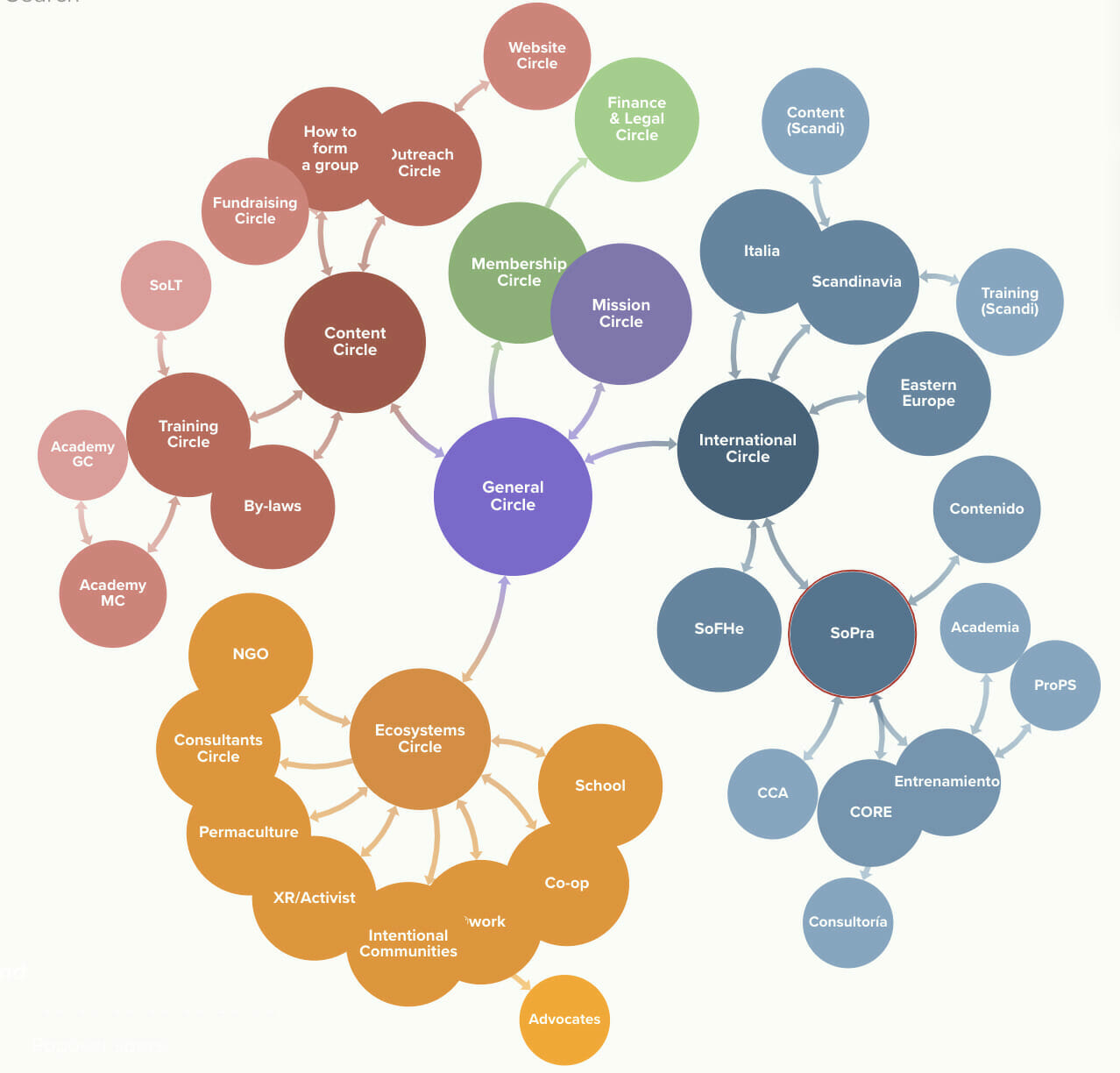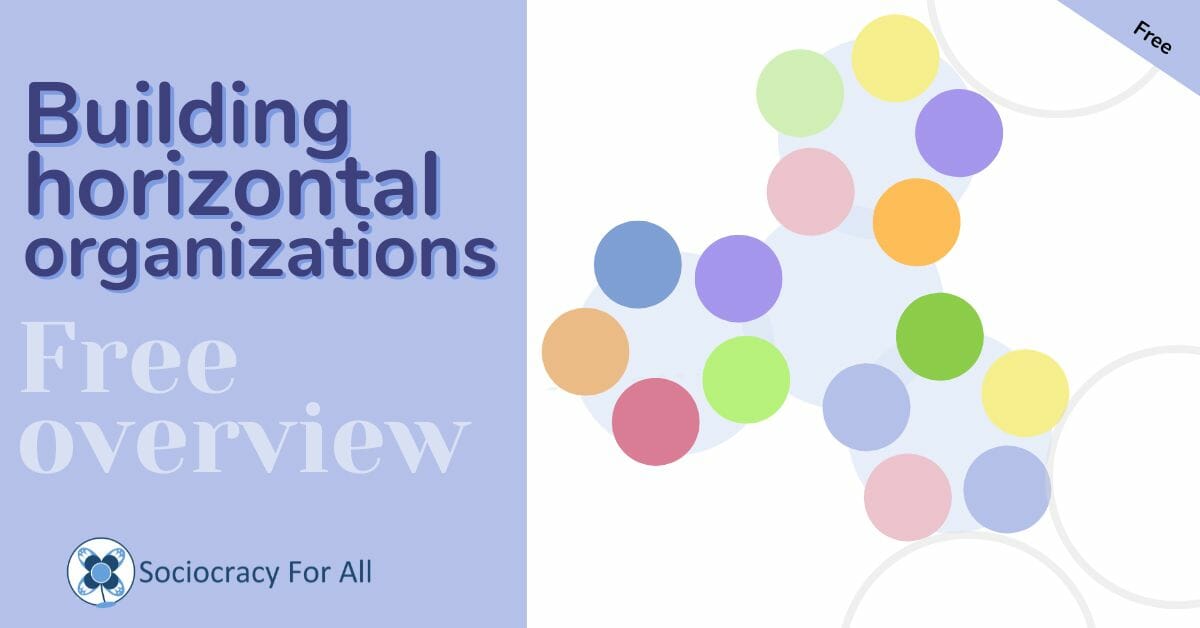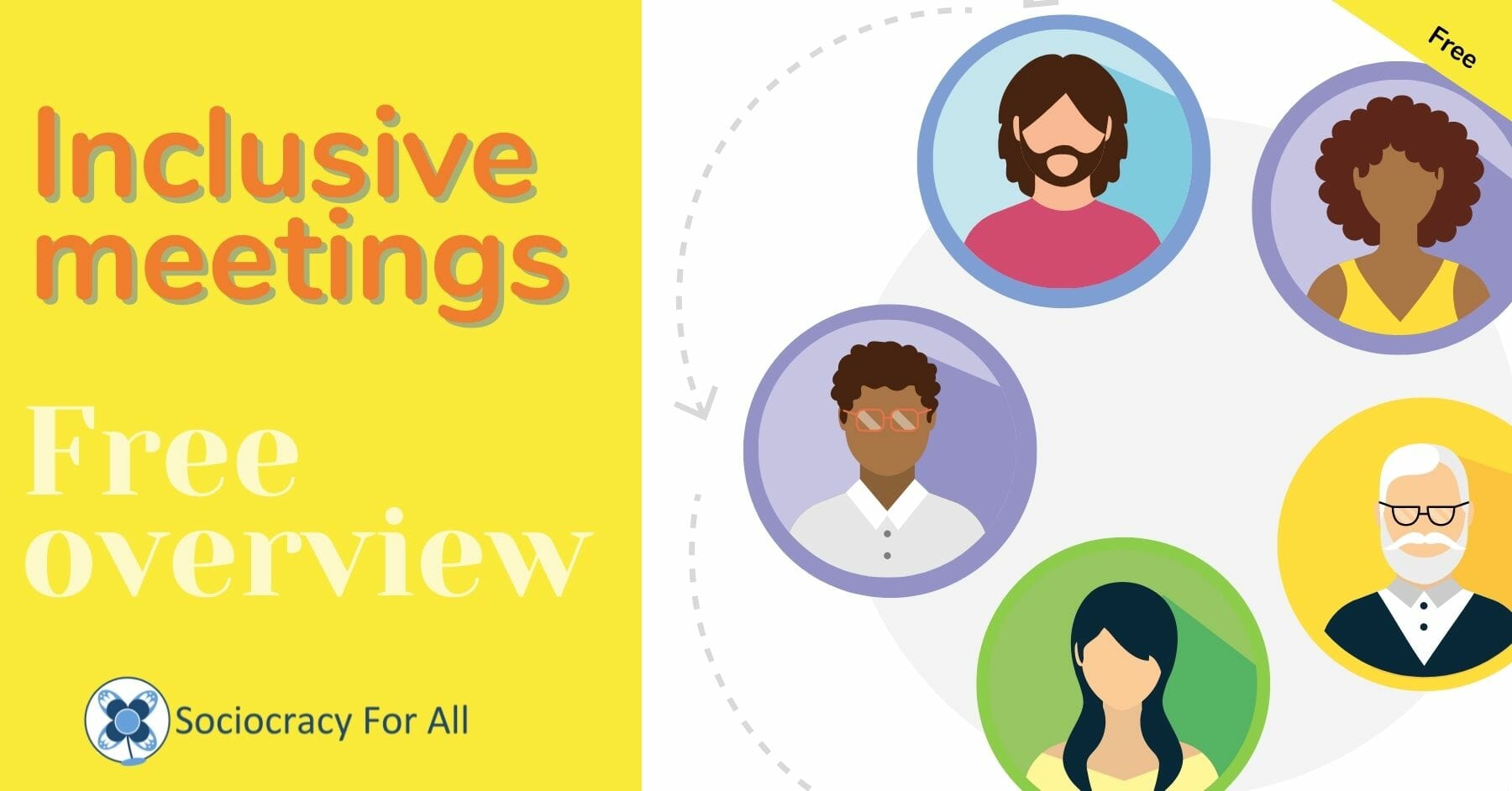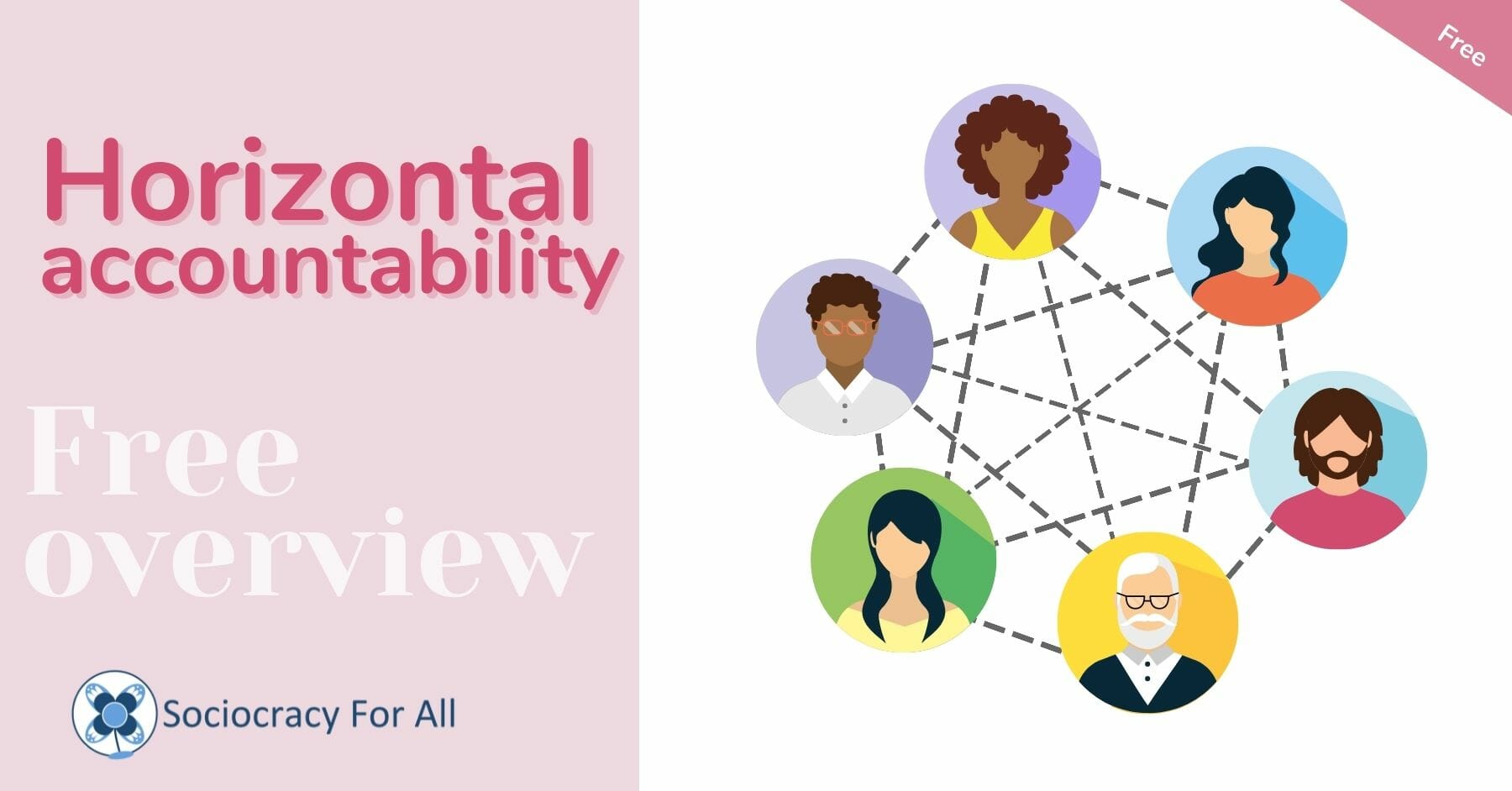Language: Español
Sociocracy combines consent decision-making, a decentralized system of authority and intentional processes to improve our decisions and processes over time into a governance system that supports effective and efficient process while increasing connection, listening and co-creation among members.
Sociocracy is used in businesses, communities, nonprofits, cooperatives, grassroots groups and in education.
Books from Sociocracy for All

Many Voices One Song
The practical sociocracy handbook written by the co-founders of Sociocracy For All. 300 pages full of real-life support!

Let’s Decide Together
The definitive guidebook for practicing sociocracy with children. Children can decide with sociocracy too!
Sociocracy topics
More: Selection process | Writing proposals | Implementation
Making group decisions: consent
Consent is the default decision-making method in sociocracy. In consent, a decision is made when no circle member has an objection. Every person will consent if they can accept the proposal, and object if the proposal has negative implications with respect to the circle’s shared aim.
A group moves to consent in the consent process: presenting the proposal and clarifying questions, quick reactions and a round of consent/objections.
Different from blocking a proposal in consensus decision-making, objections are welcomed as valuable information and they can be integrated by modifying the proposal, its term or its measurements.
Circles and roles: who decides what?
Decisions are made in circles, a defined team of people working together towards their circle’s aim. Circle members make collective policy decisions in their domain and they define operational roles to empower individuals to take on responsibility and circle roles to self-manage their circle.
Circles are connected through parent circle/sub-circle relationships of nested domains, leading to a system where everything can be decided locally in the system, without centralizing power at the center. To make sure two circles are connected, we double-link them with two people as members in both circles.
Meetings with sociocracy
Sociocratic meetings are inclusive and efficient with a clear format:
- Opening: check-in and ADMIN
- Content of the meeting
- Consent to agenda
- Agenda items
- Review
- Check-out (meeting evaluation)
Facilitation is a focus of sociocracy. Rounds – the practice of speaking one by one – are commonly used in meetings to keep equivalence and focus. Rounds also make it easy to run virtual meetings in video calls.
Performance
All sociocratic processes are built on the basic idea of continuous improvement. Feedback is a way to improve what we do, both by creating feedback-rich organizations, a commitment to interpersonal feedback and formal, peer-oriented performance reviews. Other practices are: meeting evaluations in meetings, reviews for all policy decisions and for role selections.
Leadership in sociocracy is peer-oriented and based on accountability to own commitments and to the circle. Many people also combine sociocracy with restorative justice or Nonviolent Communication to align their practice with their values and to improve their effectiveness and communication.
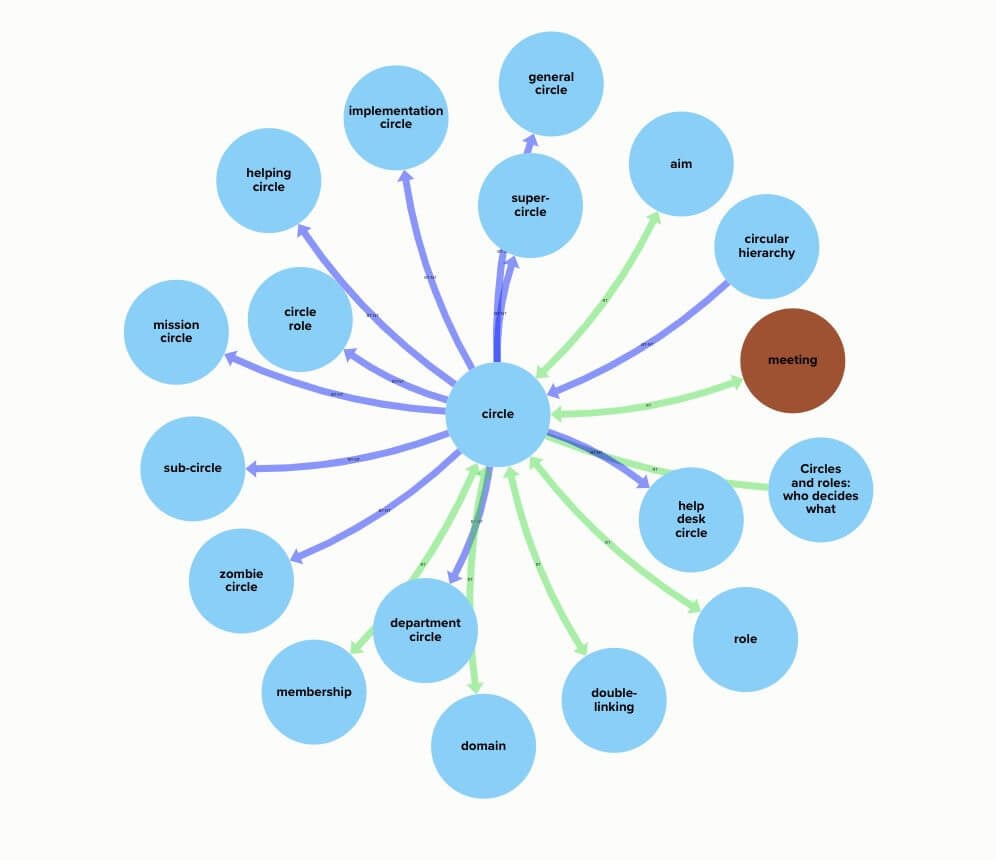
More concepts
Selection process
A sociocratic circle chooses together who will fill an operational or circle role. The most common process to choose that person is the selection process with nominations, change round and consent.

More concepts

See it done
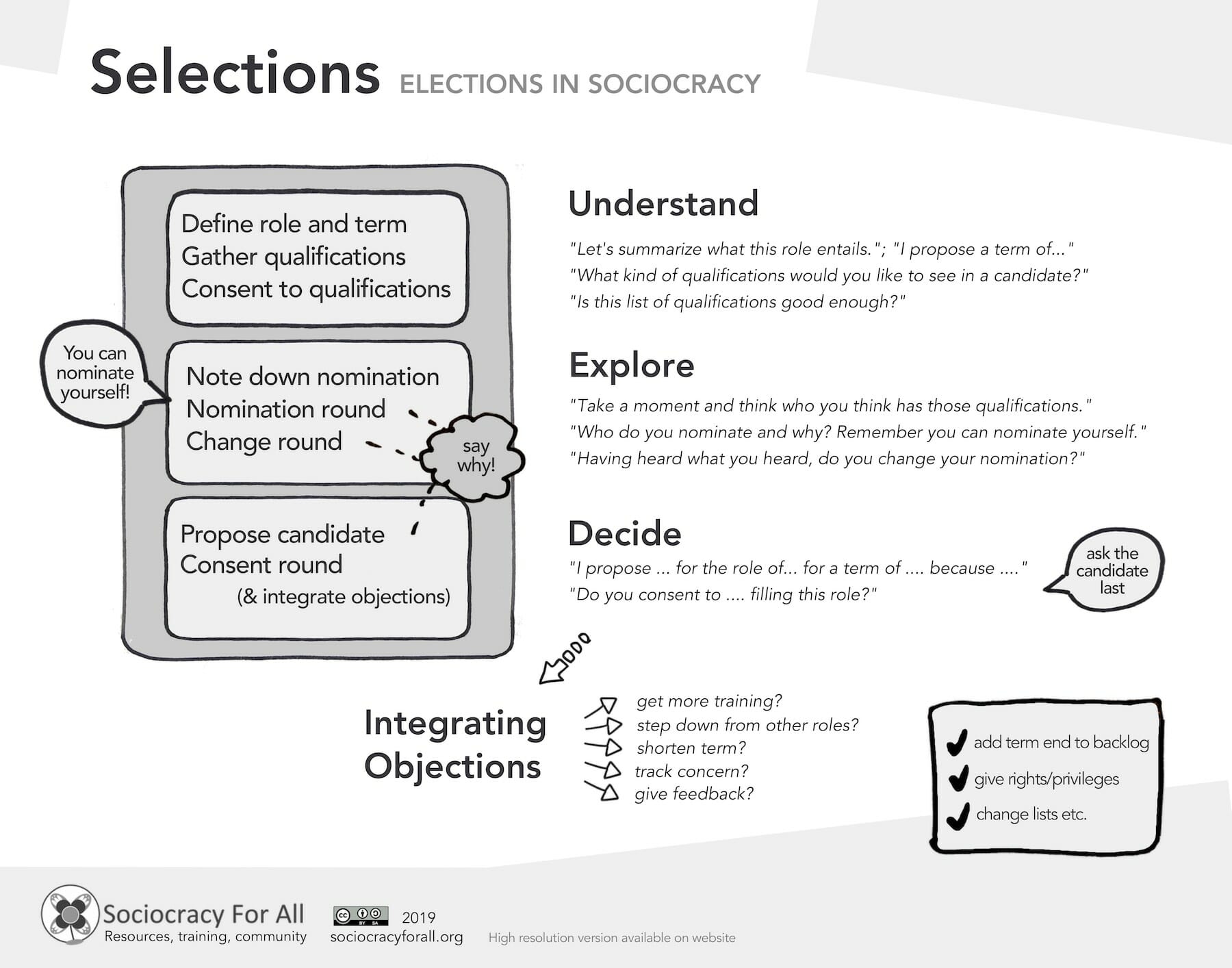
Cheatsheet
Writing proposals together
Policy proposals are always approved by a circle, but they can even be written together using the process of picture forming and proposal shaping.

More concepts

See it done
Implementation
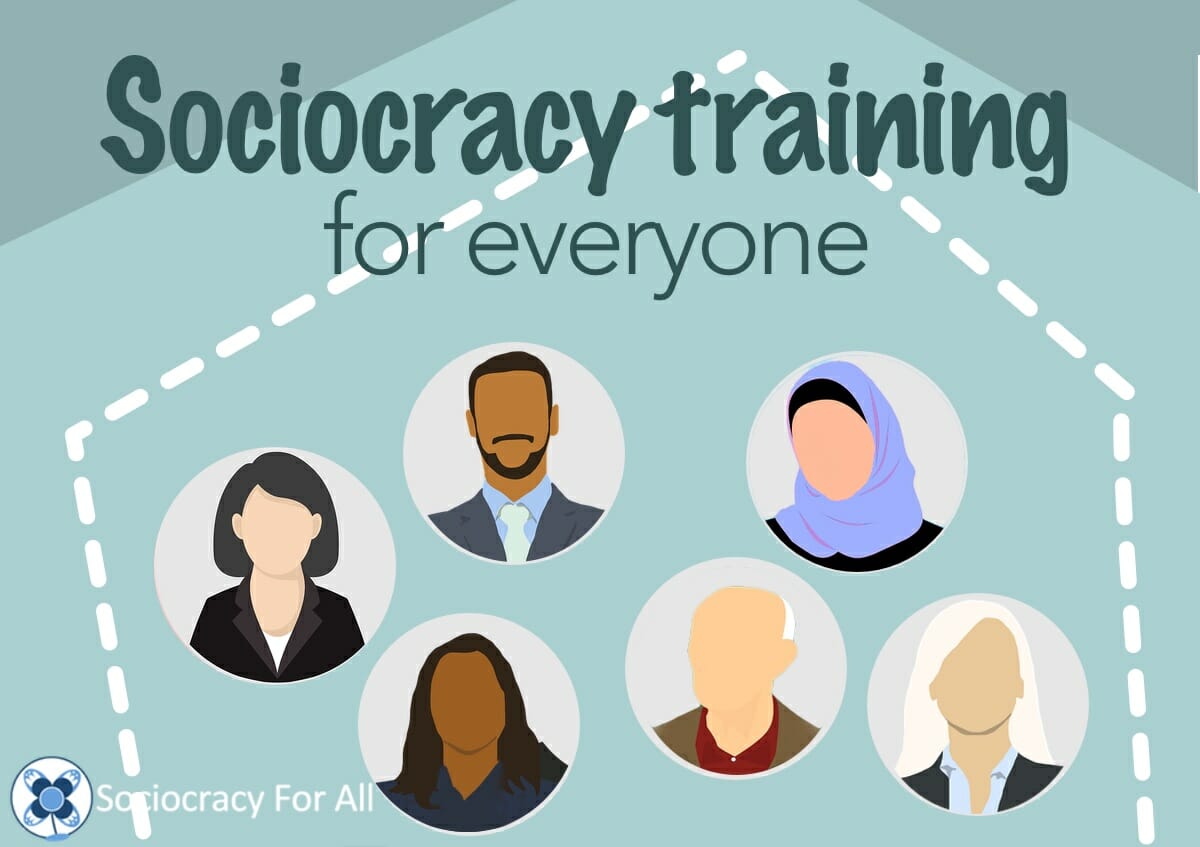

How hard or easy it is to implement sociocracy in your organization highly depends on your size, culture, current set-up and commitment.
One distinction you need to know. While training talks about sociocracy, an implementation changes the power structure of the organization.
- Training is about knowledge of how sociocracy works in general, potentially with practice on examples.
- Implementation is the application of sociocracy to a specific organization
Do you need a consultant to implement sociocracy? It depends!
- SoFA supports “self-implementations” without external help, for example through organizational membership with groups of peer support and discounts on training.
- But we also offer coaching and consulting for any desired level of hand-holding through the process. The help of a consultant is only useful when you already know that you want to implement and all decision-makers are on board – see the typical steps to get there!
More sociocracy resources: articles and videos
-
Better time management in meetings – with sociocracy
Longing for better time management in meetings? Curious what sociocracy has to offer? This video with Ted Rau gives an overview!
-
Beyond Top-Down Budgeting: Reinventing how money moves inside an organization
Rachel Murch | Sep 28th, 16:45 – 17:35 UTC.
-
Simple, clear problem-solving steps for groups
Let’s say you identify an issue that you think needs to be addressed or a problem that needs to be solved. How do you go from noticing the issue to making a decision?
-
German meetup
Steffen Emrich | 18:00 UTC
-
The Living Well Group: A residential care facility sociocracy case study
This case study features a residential care facility in Vermont that has been using sociocracy for many years in combination with a holistic care approach.
-
The Holy Grail of Self-management
Still looking for the perfect governance system? Stop overthinking. Start doing. Improve from there.
-
On Objections in Sociocracy
Language: Español What is an objection in sociocracy? Objections are a key part of consent decision-making in sociocracy. Objections are concerns that circle members raise in response to a specific […]
-
Circle Structure Introduction
Language: Español What is a circle in sociocracy? A circle in sociocracy is a working group with defined membership that has authority to make decisions in a certain domain. In organizations with more […]
-
How to run an engaging board meeting
—
by
Want a board meeting that is clear and engaging? This article offers a template that helps you prepare and run a refreshing and productive board meeting!
-
The liberating effect of “good enough for now”
“Good enough” sounds like a low-level decision-making method. And yet, for some people, that’s not how they experience it. “Only” aiming for good enough can be a matter of respect and
-
Peer-to-Peer Governance in a for-profit organization
Design company. The new processes were introduced gradually.
-
How to have quick meetings that don’t waste time
Meeting time is precious, so it’s a matter of respect to be clear about our intentions first. And the good news is there’s a framework that makes this easy.



